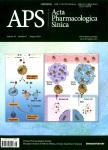Immunomodulatory effects and mechanisms of plant alkaloid tetrandrine in autoimmune diseases
Immunomodulatory effects and mechanisms of plant alkaloid tetrandrine in autoimmune diseases作者机构:Rheumatology/Immunology and Allergy Department of Medicine Tri-Service General Hospital National Defense Medical Center Taipei Taiwan China
出 版 物:《Acta Pharmacologica Sinica》 (中国药理学报(英文版))
年 卷 期:2002年第23卷第12期
页 面:40-48页
核心收录:
学科分类:1002[医学-临床医学] 100201[医学-内科学(含:心血管病、血液病、呼吸系病、消化系病、内分泌与代谢病、肾病、风湿病、传染病)] 10[医学]
基 金:Project supported by National Health Research Institutes Taiwan China.(NHRI-GT-EX89B915C)and Tri-Service General Hospital(TSGH-C91-13)
主 题:tetrandrine T-lymphocytes autoimmune diseases alkaloids
摘 要:Autoimmune diseases characterized by activation of immune effector cells and damage of target organs are currently treated with a combination of several disease-modifying antirheumatic drugs (DMARDs) that preserve different immunomodulatory mechanisms. Such a combination treatment strategy not only provides synergistic effects but also reduces side effects from individual drug. Tetrandrine (Tet), purified from a creeper Stephania tetrandra S Moore, is a bis-benzylisoquinoline alkaloid and has been used to treat patients with silicosis, autoim-mune disorders, and hypertension in China’s mainland for decades. The accumulated studies both in vitro and in vivo reveal that Tet preserves a wide variety of immunosuppressive effects. Importantly, the Tet-mediated immu-nosuppressive mechanisms are evidently different from some known DMARDs. The synergistic effects have also been demonstrated between Tet and other DMARDs like FK506 and cyclosporin. These results highlight Tet a very potential candidate to be consid



